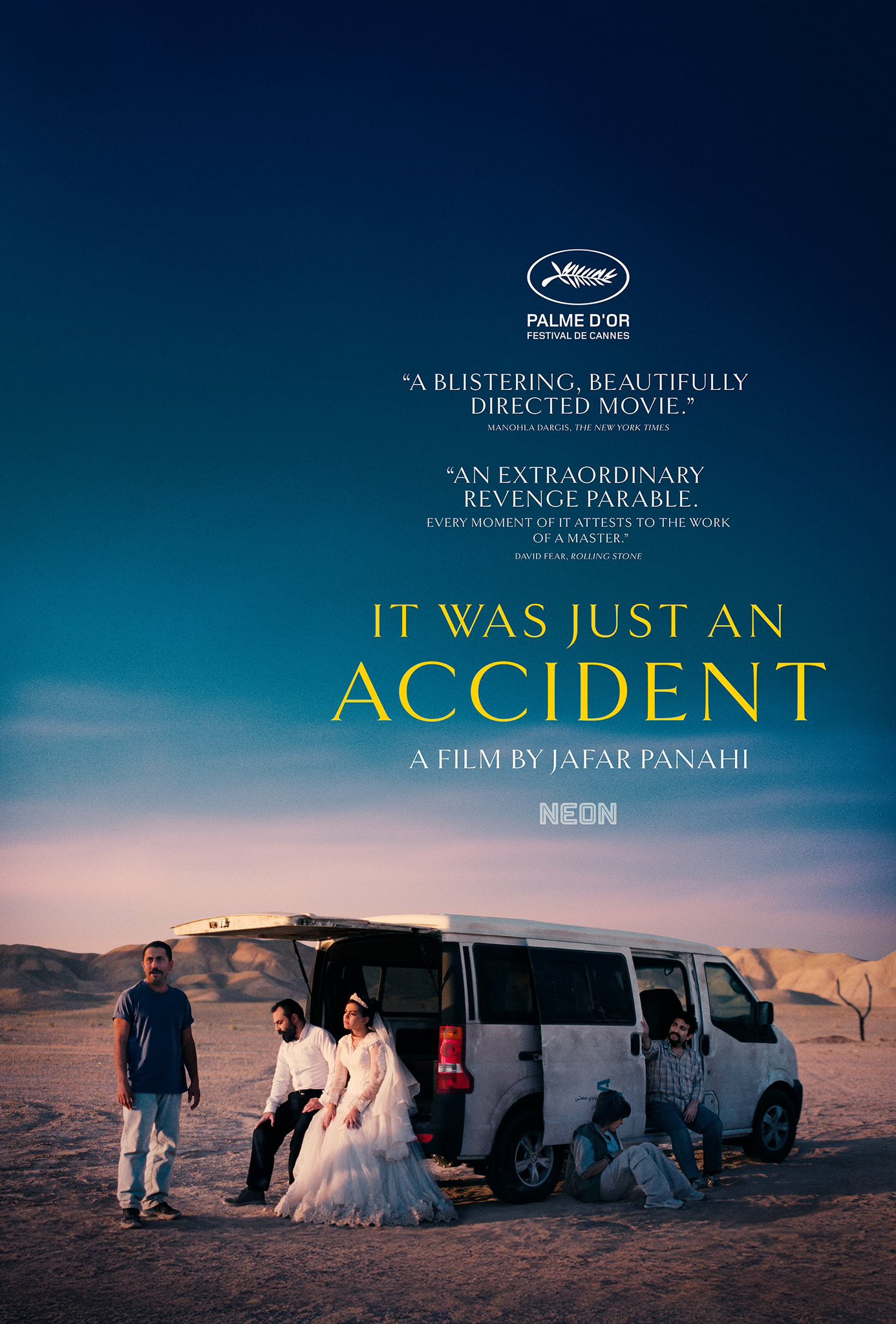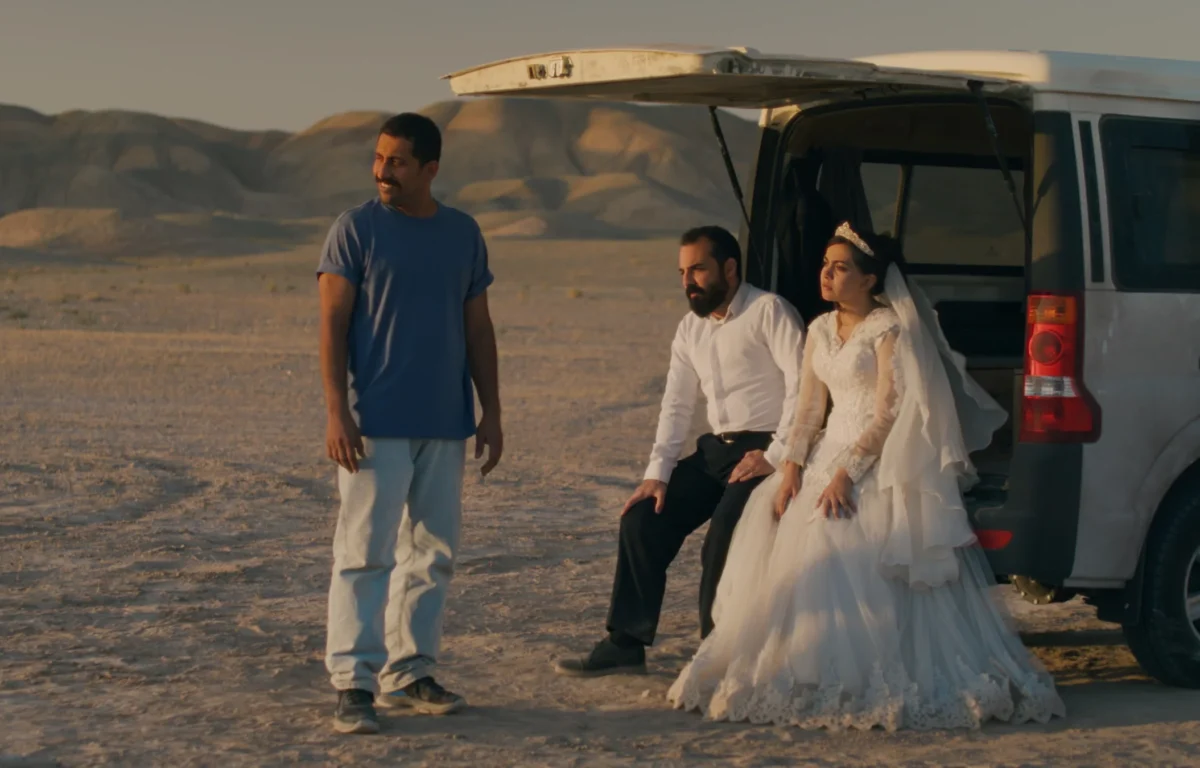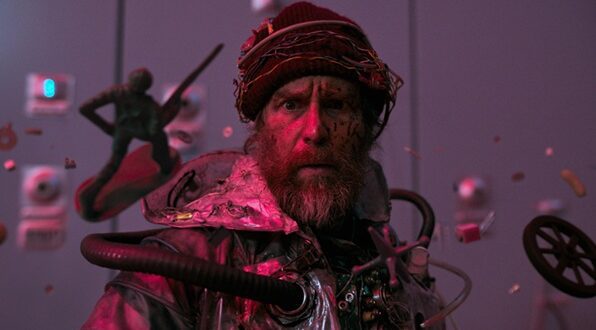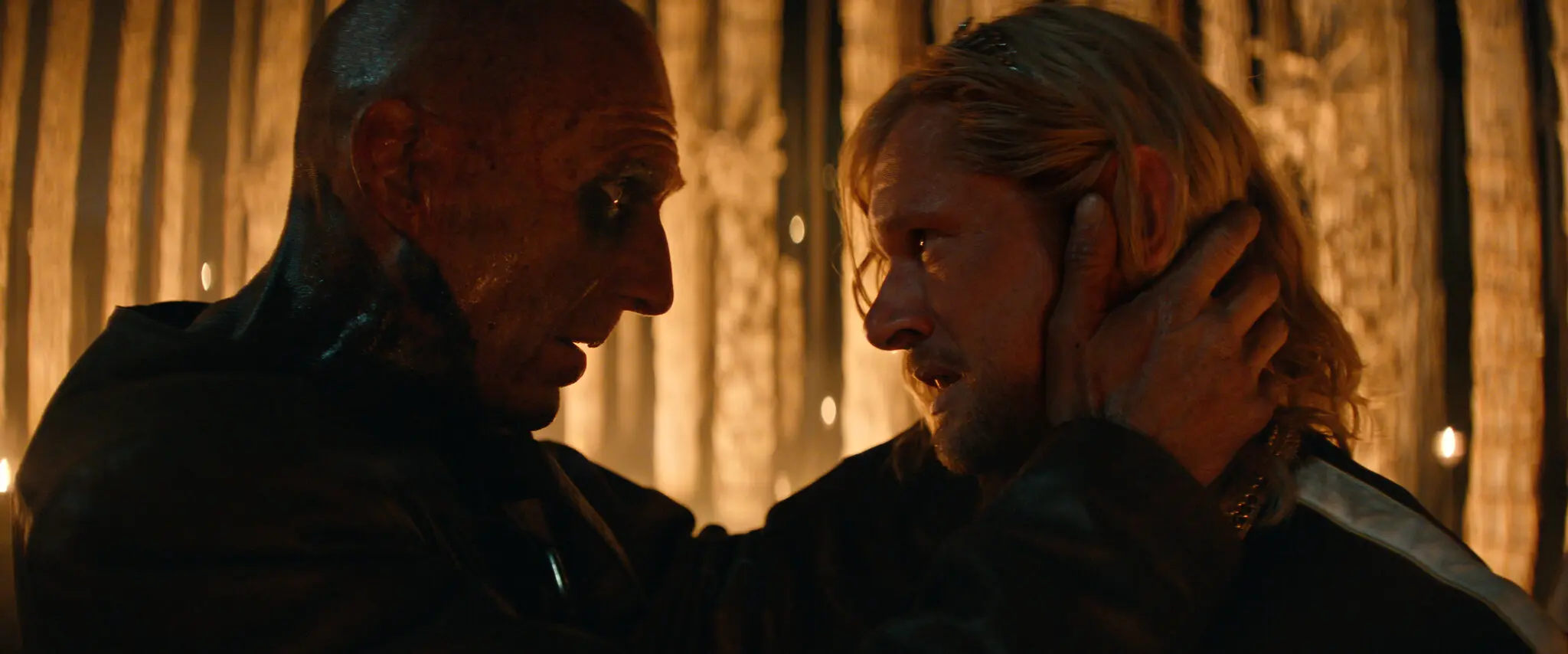ASHEVILLE, N.C. (828newsNOW) — Revered Iranian filmmaker Jafar Panahi has returned with his latest movie, “It Was Just an Accident,” a filmic tour-de-force already generating Oscars buzz after winning the coveted Palme d’Or at the 2025 Cannes Film Festival. It deserves it. “It Was Just an Accident” is one of the best films of the year.
“IT WAS JUST AN ACCIDENT” (2025, 104 min., directed by Jafar Panahi)
Don’t get me wrong, there are so many wonderful, exciting, complicated scenes packed into “It Was Just an Accident.”
Hadis Pakbaten gives a heartwrenching, furious monologue as her character Goli, confessing crimes committed against her in a white wedding dress stained brown.
Elsewhere, Mohamad Ali Elyasmehr, giving a live wire performance as the rash, foul-mouthed Ali, attempts a high speed getaway in a work van-turned-kidnapping vehicle.
Before that, Elyasmehr and his comrades are accosted by two leering security guards, who force them to pay for peace and privacy with a portable credit card reader the guards carry.
Even earlier, Vahid, played by Vahid Mobasseri, who previously collaborated with Jafar Panahi on his 2022 film “No Bears,” assaults a man with a shovel in broad daylight.
These sequences, like the actors who perform them, each deserve attention for the seamless way they come together to create one of the most consistently engrossing films of the year. Pakbaten, Elyasmehr, Mobasseri and their costars Mariam Afshari, Majid Panahi and George Hashemzadeh lack heaps of IMDb credits to their names, but they each give memorable, breathtaking performances as victims of the Iranian military regime, exacted through the twisted justice of a one-legged man named Eghbal, played by Ebrahim Azizi.
However, setting aside that brilliant hour and 20 minutes at the center of “It Was Just An Accident,” all you really need to grasp the power of Panahi’s latest are the beginning and the ending.

SPOILER WARNING: Plot details of “It Was Just an Accident” are explored in the next section.
There are no accidents in “It Was Just an Accident”
Though Panahi’s films are frequently characterized by their stripped-down realism – often necessitated by the restrictive circumstances in which the filmmaker has been forced to work – there is an unmistakable heightened feeling to the opening and closing scenes of his latest movie thanks to careful blocking and impeccable sound design.
Though Azizi’s Eghbal will later be revealed as the movie’s villain, “It Was Just an Accident” opens from his point-of-view. The very first shot is situated on the dash of a car, framing the faces of Eghbal and his wife, played by Afssaneh Najmabadi. The two are engaged in a banal conversation, later interrupted by their dancing daughter – a wonderful Delmaz Najafi, in a terrific child performance with a lot to do in the second act of the film – blaring music on her tablet. In the background, there are dogs barking. At a certain point, the car jolts over a pothole, which reveals that Eghbal’s wife is pregnant: the child must have done a “somersault in there,” the couple chuckle. The bump and the barking which precede it turn out to be auditory preludes to their combination: a second jolt of the car is punctuated with the whine of a dog as Eghbal runs it over.
Though Eghbal is a little upset and his daughter is shocked and disturbed, his wife is unperturbed.
“These poor animals get run over,” she says. “It was just an accident.”
The cold open of the film is a little heavy-handed on the metaphor front. Eghbal, a man in power literally “in control of the wheel,” carelessly kills a noise-making innocent. To compare the way the family views the dog to the way Iran treats vocal dissidents like Vahid and his compatriots is an easy connection to make.
In many ways, Panahi’s film is about accountability and responsibility; the weight of what we owe others and presumption of those debts. It can be casual – security guards abusing their authority for a quick buck – or it can be fatal, like the fallen victims of the regime Vahid and his friends reference throughout the film, or even the loss of innocence they’ve endured themselves. As Hamid yells during an angry rant, Eghbal and his cronies stole “the five best years” of his life.
All too often, however, those atrocities and injustices are treated as mere happenstance by those in power in Panahi’s film. One man’s death is another man’s dehumanized, desensitized “accident.”
Most of “It Was Just an Accident” plays out as a revenge drama. The plot is laid in motion after Vahid guesses Eghbal is his torturer after hearing the squeak of his prosthetic leg when the man coincidentally stops by his place of work, sets out to get payback on the evil he has endured. Though Vahid has been crippled with injury from his imprisonment, wincing with pain throughout the movie – Mobasseri is terrific throughout, often simmering with anger but never lacking an undercurrent of kindness – will not let himself be characterized as a dog run over by the machine of power.
Nor will those he asks for help. Though Vahid is reasonably confident in Eghbal’s identity, at least enough to kidnap and half-bury him alive, he was blindfolded during his prison sentence, and with Eghbal vociferously denying his identity, he decides he needs other sets of ears to confirm the torturer is who he thinks. What follows is effectively a much more upsetting version of “getting the gang together” in a heist movie, as Shiva, Goli, her fiancé Ali and Hamid are ripped from efforts to rebuild their lives and made to relive their darkest traumas.
By the end of the film, each of the former prisoners have had their chance to debate, vent and curse over Eghbal’s unconscious body. Every single one of the principle cast members gets their chance to shine, especially during a lights-out sequence in the desert around the open grave Vahid had dug. However, ultimately, only Vahid and Afshari’s Shiva are left to mete out justice.
Here is where Panahi picks up the threads of his opening sequence and mirrors it.
Rather than getting treated as a dog killed quietly offscreen while his slayer drives away, Eghbal is lashed to a tree by Vahid and Shiva, where the camera stays stock-still and centered on his body, bathed in the red glow of the car taillights.
Rather than dismissing death with a pithy excuse like Eghbal’s wife, Shiva threatens an apology out of Eghbal until both are in tears.
Rather than living a future filled with babies and the bright, colorful lights of a child’s tablet, Shiva and Vahid are trapped in a red-lit Hell of reliving the past.
For the first time, two people who have been powerless for so long have the ultimate upper hand over their oppressor. Yet, despite their threats in the moment and the determination which has powered them through the entire movie, Shiva and Vahid cannot bring themselves to exact vengeance on Eghbal in the brutal way that pain was delivered unto them.
Panahi is holding a formal mirror up to the Iranian regime with the pair of scenes.
Brutality, he seems to say, is not true justice. Mercy is.
There is one last piece of “It Was Just an Accident” that ties it all together in a scene immediately following the tree interrogation, the final of the film.
While the first shot of the movie is Eghbal and his family, driving happily together with their faces forward, the final shot is of the back of Vahid’s head, standing alone, frozen. Rather than the rumble of a car motor, the jingle of a child’s music or the barking of dogs, the only sound is the unmistakable squeak of Eghbal’s prosthetic leg, the very noise which spurred the events of the film in motion. Though Vahid has successfully had his comeuppance with his oppressor, that sound – the memory of what has been done to him – will follow him forever.
“It Was Just an Accident” is an examination of scar tissue. What is done through oppression is done forever, no matter what retribution may follow after. That squeaking sound is a harrowing critique of an unjust world. It also makes for possibly the best movie ending of the year.
Rating: 4.5/5
“It Was Just an Accident” is now playing in select theaters nationwide.







